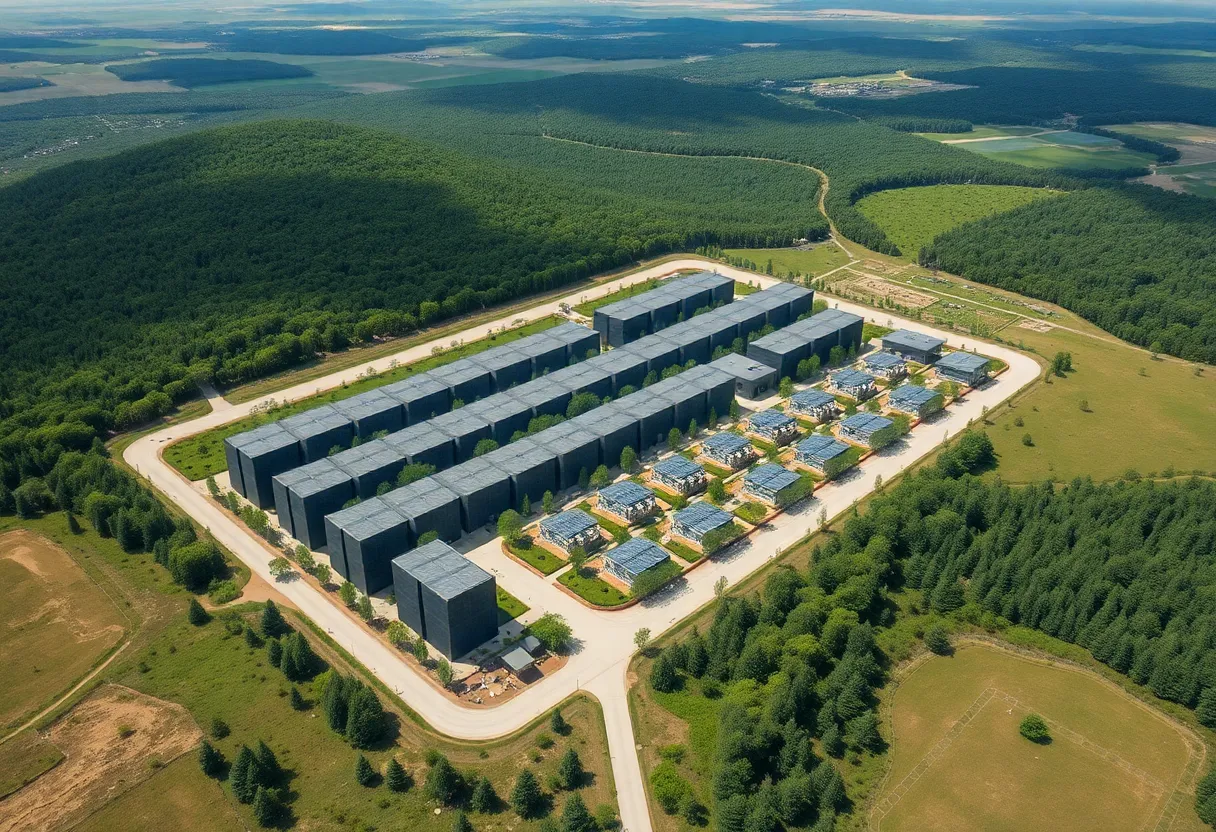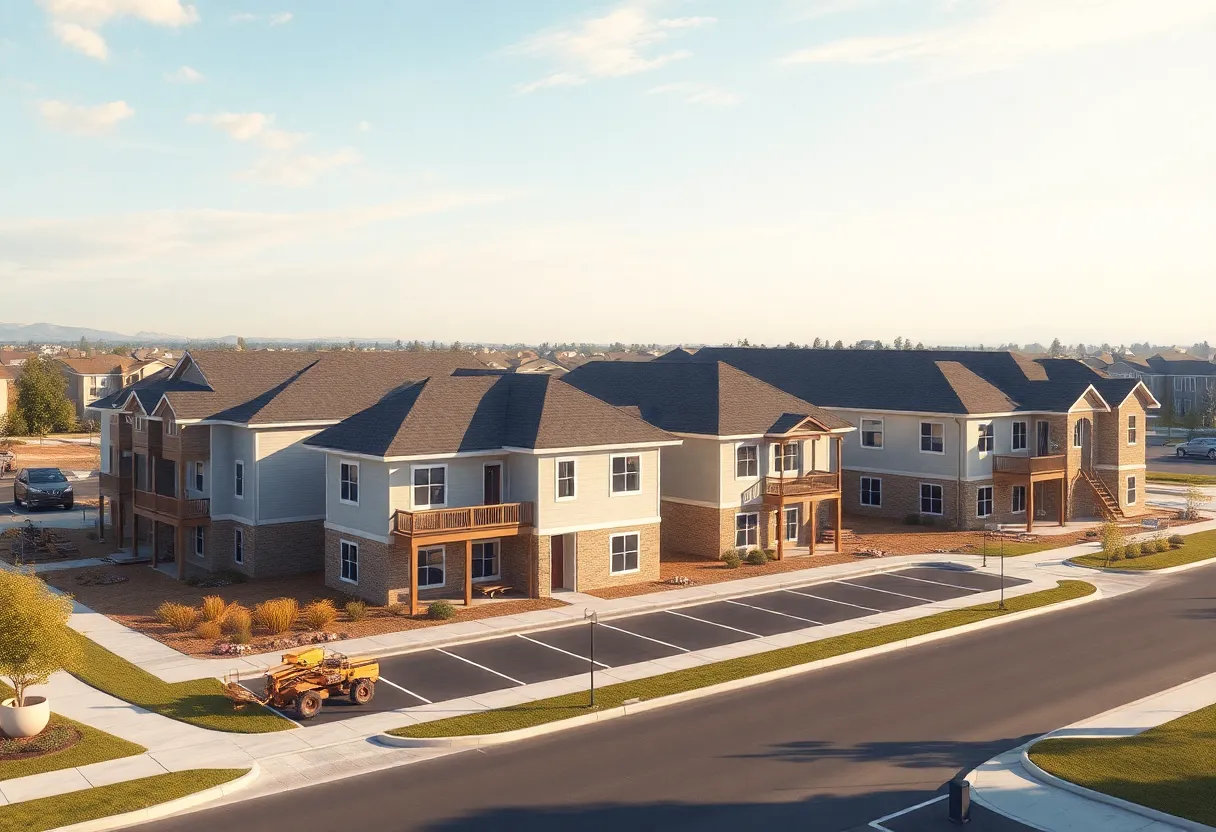Pennsylvania, August 12, 2025
News Summary
A recent public hearing in Pennsylvania revealed significant environmental and regulatory hurdles facing data center developments. With over 300 attendees, concerns were raised about required permits and compliance with state and federal regulations. The Department of Environmental Protection is working to streamline the permitting process while balancing community values and environmental standards. Although challenges exist, local leaders highlighted potential job opportunities and economic benefits from data center projects, emphasizing the importance of engaging stakeholders in thoughtful planning to ensure sustainable development.
Public Hearing Highlights Environmental Concerns and Regulatory Hurdles for Pennsylvania Data Centers
The development of data centers in Pennsylvania faces significant environmental challenges and regulatory hurdles, as highlighted during a recent public hearing attended by over 300 residents and local officials. Projects of this nature require a range of environmental permits from the Department of Environmental Protection (DEP) to ensure compliance with both state and federal regulations.
Key permits needed for data center projects include NPDES permits for earth disturbance and post-construction stormwater management, adhering to the Clean Water Act. Other essential authorizations involve Water Obstruction and Encroachment Permits (Chapter 105) for any construction impacting local streams or wetlands. Additionally, developers are required to address sewage facilities planning under Act 537, ensuring proper disposal of sewage and wastewater.
Moreover, project undertakings may also necessitate permissions from entities like the Delaware River Basin Commission (DRBC) or the Susquehanna River Basin Commission (SRBC) for water withdrawals, depending on usage requirements. Compliance with the Safe Drinking Water Act is mandatory for non-community drinking water systems. Specific permits related to wastewater treatment facilities, aboveground storage tanks, and air quality standards for power generation must also be obtained, contributing to a complex permitting landscape.
Data center developers must navigate coordination with multiple bodies, including the U.S. Army Corps of Engineers and the U.S. Fish and Wildlife Service. This collaborative requirement is essential to address evolving challenges surrounding environmental permitting, especially when technological changes and adjustments to site plans affect potential erosion and sediment control.
The significant energy demands of data centers lead to the necessity for infrastructure enhancements, including high-voltage electric transmission lines and natural gas pipelines. Delays in the permitting process can arise from numerous factors such as project plan revisions, misalignment with local infrastructure, and insufficient public outreach efforts.
Existing issues, such as outdated sewage facilities plans and overloaded infrastructure, can further impede the approval of new developments. Often, economic growth projects face slowdowns if they do not align with local municipal or regional comprehensive plans. Engaging with communities early and providing transparent information is crucial for mitigating opposition and reducing delays during the permitting timeline.
The DEP aims to improve regulatory clarity, streamline the permitting process, and foster cooperation with developers. Their goal is to align projects with environmental standards and reflect community values. During the hearing, concerns highlighted included power consumption, water usage, and potential noise pollution resulting from data centers.
Despite these challenges, local leaders noted that data centers could bring considerable benefits to communities, including job opportunities and enhanced tax revenue. The importance of thoughtful planning and engaging stakeholders in data center proposals was emphasized to ensure that they meet the unique needs of each locality.
Furthermore, companies like Amazon are taking steps towards sustainability, committing to becoming water positive by 2030 and developing environmentally friendly practices for their data centers. This commitment underscores the necessity to balance local economic benefits with environmental protection.
In summary, while the development of data centers in Pennsylvania stands to provide economic incentives, the associated environmental and regulatory challenges require careful attention. By fostering dialogue among stakeholders and engaging local communities, the path forward can be navigated more effectively, benefiting both the economy and the environment.
Deeper Dive: News & Info About This Topic
Construction PA Resources
Additional Resources
- WNEP: Residents Voice Concerns on Amazon Data Center Plans
- PA Senate GOP: Public Hearing on Data Center Development
- The Center Square: Data Center Developments in PA
- PennLive: $26 Billion in Data Center Projects
- Times Leader: Data Centers in NEPA as 4th Industrial Revolution
- Wikipedia: Data Center
- Encyclopedia Britannica: Data Center
- Google Search: Data Centers Pennsylvania
- Google News: Data Centers





